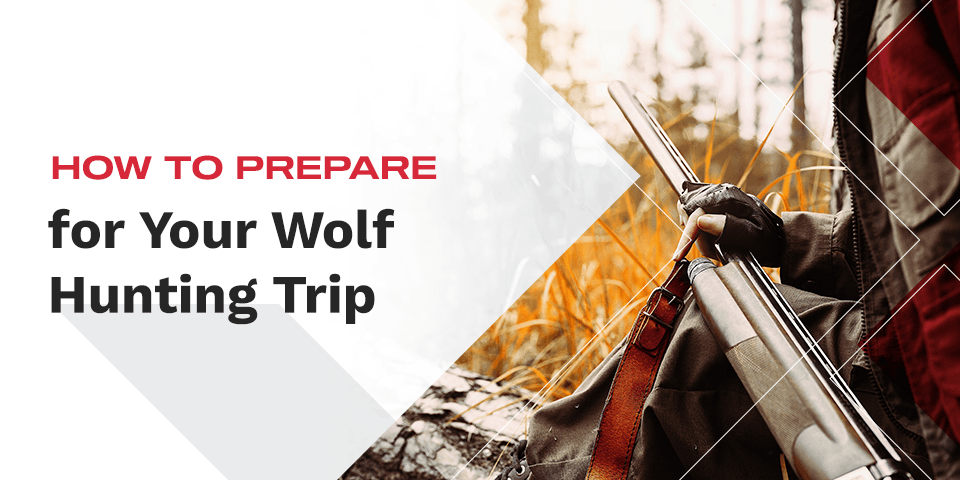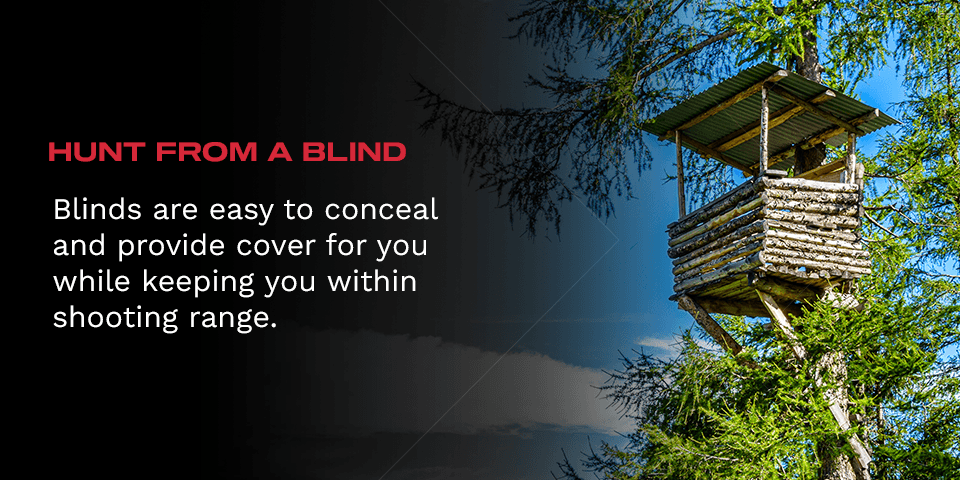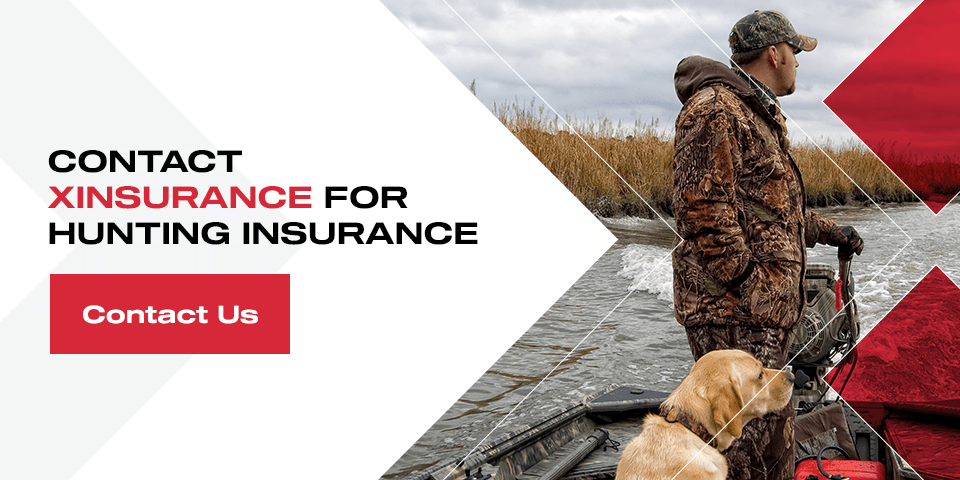
How to Prepare for Your Wolf Hunting Trip
Whether you’re hunting wolves on your own or are working with an outfitter service, wolf hunting trips take some preparation and require some safety considerations. Consider these tips for wolf hunting to help increase your chances of a safe and successful hunt.
1. Pay Attention to State Regulations
As with most other hunting seasons, states often have their own sets of hunting regulations for wolf season. Depending on the wolf population in a given area, among other things, the state wildlife commissions will determine restrictions and regulations by which hunters are required to abide. Regulations may vary depending on what state you’re hunting in, so be sure to check with the game commission.
For example, in Wyoming, licensed hunters are only eligible to purchase two gray wolf tags, thus limiting them to two wolves per season. However, in Montana, hunters with proper licensure can take up to 10 wolves via hunting and 10 wolves via trapping. Learn the state regulations so you can have a safe and successful wolf hunt.
2. Practice Shooting Long Distances
Wolves are wary, alert animals that will quickly sense your presence if you’re careless or too close. Wolf hunters commonly set themselves up in one location they know the wolves will come to or travel through, then lure them in with bait or distress calls. This often results in the need to take long-distance shots. To ensure you’re able to accurately and successfully shoot a wolf from long distances, practice making long shots prior to your hunt.
3. Connect With Private Landowners
Because wolves are wary animals, heavily hunting public areas can push the wolves into less frequently hunted land, like private land. These areas are often posted and restricted from public use. Because wolf populations tend to use these private lands as a refuge from public hunting lands, connecting with private landowners can be beneficial. You’ll have more chances at finding a wolf to take, plus you’ll likely be doing the landowner a favor, as wolves are undesirable to have running around homes and domestic animals.
4. Hire an Outfitter
For many hunters embarking on a big game hunt in a new state, hiring an outfitter is one of the safest and most successful ways to hunt wolves. Outfitters are hunting guides who have extensive knowledge of the area and the animal you’re hunting. When you hire an outfitter, they’ll handle all the scouting and preparation to find the best location for you to hunt. They’ll also help you during and after the hunt to give you the best chance at success.
Using an outfitter can be beneficial because they have access to resources you may be unable to use on your own. For example, some outfitters use baiting as a tactic for drawing wolves into the desired area. If you’re an out-of-state hunter, you may not know where to get or how to use bait when wolf hunting. With the help of a guide, you’ll have the upper hand.
5. Use Distress Calls and Howling
Another popular tactic to use when wolf hunting is to lure the wolves in with distress calls and howling. Wolves can hear calls and howls from miles away, giving you the opportunity to call them in from other areas. The key with calling is to use calls that mimic a wolf’s prey. For example, moose or elk calls work effectively, especially if the call is that of a cow bleat or calf crying. These types of calls, as well as howls, can draw a wolf in to prey on the suspected animal, giving you the opportunity to take a shot.
6. Hunt From a Blind
Since wolves have keen senses, consider hunting from a blind. Blinds are easy to conceal and provide cover for you while keeping you within shooting range. Wolf hunters like to use blinds when baiting wolves because it enables them to be in the area without getting the wolf more on guard than it likely already is. Wolves are cautious when approaching carcasses in case there are other predatory animals around. Set the blind up at least a quarter of a mile away in an area where you have a clear line of sight to the bait.
7. Invest in Quality Camoflague
While any camo will be more effective than no camo, you should consider investing in quality camouflage that will match the terrain where you’ll be hunting. For example, wolves aren’t always found in heavily wooded forests. In some states, you’ll be hunting in sagebrush or pines. Investing in quality camo that will match the terrain helps you stay concealed from wolves’ keen eyesight.
8. Learn Where Wolves Travel
An important part of hunting, in general, is scouting. Scouting consists of many things, including learning where an animal is traveling and looking for signs of the animal in specific areas. For example, wolves tend to travel easy routes like trails, roads, or frozen lakes. If you’re able to detect signs of activity in these areas, it’s smart to set up a blind with a view of their route so you can set yourself up for a shot opportunity.
9. Carry a Wolf Tag When Hunting Other Animals
While going out and hunting specifically for wolves can be rewarding, very few hunters go out to exclusively hunt wolves because it can be extremely challenging, especially if you’re new to hunting the species. If you do other kinds of hunting, like elk, deer, or moose, consider carrying a wolf tag with you during these hunts, too. Wolves are commonly taken during deer or elk hunts because they’re usually not far from these animals.
Trying to locate wolves specifically is difficult, though you’re likely to come across a pack during deer hunts. Carry a wolf tag any time you go hunting so you can shoot one even if it wasn’t your purpose for being in the woods.
10. Get Wolf Hunting Insurance
Though wolf attacks and encounters are uncommon, hunting for them can be risky. When wolf hunting, safety should be a top priority. While most hunters are extremely safety-conscious, accidents can still happen. In these instances, it’s crucial that you’re prepared and will be protected in such events. The best way to protect yourself in the event of a hunting accident is hunting insurance. Wolf hunting liability coverage protects you from risks involved with wolf hunting. Regardless of how small you assume the risk is, consider preparing for the worst.
Contact XINSURANCE for Hunting Insurance
XINSURANCE hunting liability coverage is the best way to go big game hunting with peace of mind. Our specialists will help find a coverage solution for your high-risk activities. Whether you’re a hunting-land owner or avid hunter, ensure you’re covered from costly lawsuits before partaking in any hunting activities. Contact us today to find out how we can provide custom insurance solutions for you.

Rick J. Lindsey hails from Salt Lake City, Utah. He began working in the mailroom of his father’s Salt Lake City insurance firm, getting his introduction to the business that became his lifelong career. Rick J. Lindsey quickly rose through the ranks while working in nearly every imaginable insurance industry job. As an entrepreneur, specialty lines underwriter, claims specialist, risk manager, and a licensed surplus lines broker, Rick J. Lindsey is highly skilled in all levels of leadership and execution. As he progressed on his career path, Rick J. Lindsey discovered an urgent need for insurers willing to write policies for high-risk individuals and businesses. He was frequently frustrated that he could not provide the liability protection these entities desperately needed to safeguard their assets. He also formed the belief that insurance companies acted too quickly to settle frivolous claims. Rick J. Lindsey decided to try a different approach. He started an insurance company and became the newly formed entity’s CEO. This opportunity has enabled Rick J. Lindsey to fill a void in the market and provide a valuable service to businesses, individuals, and insurance agents who write high-risk business. XINSURANCE also specializes in helping individuals and businesses who live a lifestyle or participate in activities that make them difficult for traditional carriers to insure. If you’ve been denied, non-renewed, or canceled coverage, don’t give up quite yet. Chances are XINSURANCE can help.



